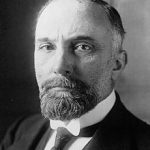This was a brief war between Britannia and Uncle Sam that many Americans and Britons know nothing about. Still it happened, and it contained at least one significant event: a British army burnt the new city of Washington, DC.
The Americans were greatly annoyed and frustrated in 1812, when the British restricted trade as a retaliation against Bonaparte’s ‘Continental System’. This was nothing more or less than a total blockade of British ports, planned by Napoleon to starve the island kingdom. Not even the Royal Navy was able to do much about the blockade.
Most historians agree that the War of 1812 was also a result of America’s frustrations with British and Canadian policies of obstruction. The United States wished to expand more and more westward, and the British/Canadian policy was to stop them. So Congress declared war on Britain in June. Warlike engagements happened along the USA – British – North American (i.e. Canadian) border.
William Hull the US force commander advanced into Upper Canada, only to withdraw to Detroit in early August. Things went badly for Hull because a combined Canadian/British army took Detroit in October. The British commander was the un-English sounding Isaac Brock.
In October of the same year a second US force invaded Canada, crossing the Niagara River and storming Queenston Heights. Unfortunately this signally failed too, as the invading troops were repulsed again by Brock’s Anglo/Canadians. The Americans were said to be gratified to learn that Brock himself was killed.
In October, 1813 a third US army, this time under General Harrison, won the Battle of the Thames, in southwestern Ontario (not the river Thames in England). Among the killed was a Native American brave called Tecumseh, a Shawnee leader fighting on the British side. Balance was restored in November when a large US force was defeated by a rather smaller allied British one at Crysler’s Farm on the St. Laurence River. In July, 1814 at the Battle of Lundy’s Lane, an American army under General Brown fought a British force under General Drummond, at night.
There are disagreements about which side won, but the US force then retired, after which there were no more attempted invasions of Canada.
Back in 1813 a squadron of six British warships was on Lake Erie, for reasons best known to its commander; the squadron was lost to a superior American force. In September the following year a larger squadron, this time of sixteen ships was forced to surrender while sailing on Lake Champlain (known to any British visitor (like myself) as Chillblain due to the extreme cold).
On the high seas there were several naval engagements, none of which did much good to the prestige of the famous British Navy, whose captains discovered that American sailors knew their own waters, their stuff, and had tremendous guts. But the British blockade of American ports continued unabated, and by the end of 1814 considerable damage had been done to the American economy. Meanwhile, also in 1814, a new British expeditionary force landed at Chesapeake Bay in Virginia, marching north immediately to take and burn the new city of Washington in the District of Columbia. This was a terrible shock to the Americans, and it might be that it was at this time that both sides, fed up with war, death and mutual defeats, especially in a war of such dubious provenance, decided to call it a day and on 24 December the Treaty of Ghent was signed by both parties. All conquered territories were restored to their original owners and the only persons not happy were the parents on both sides whose sons had been killed in one of the stupidest of all stupid wars.
On 8 January, 1815 (the year of Waterloo q.v.), two weeks after the war had been terminated by the Ghent Treaty, a British force encamped outside New Orleans was attacked and beaten by US General Andrew Jackson, who one must assume knew about the Treaty of Ghent. He became a national hero and had to wait until May, 1863 (American Civil War q.v.) when at the Battle of Chancellorville he was mortally wounded in an accident involving his own men.











This article is frightfully wrong! Andrew Jackson became President of the United States and died prior to the American Civil War. Thomas J. (Stonewall) Jackson was a great southern general in that war and it was he who was killed at Chancellorsville. The two Jacksons were not related.
It is extemely disturbing to find such fundamental, and readily discoverable, errors on a blog purporting to provide historical prospective.
Please see the article on American Confederate States
I am disturbed that you are disturbed, but I think you might find less mistakes if you were to read articles closer and with more attention.
Dean.